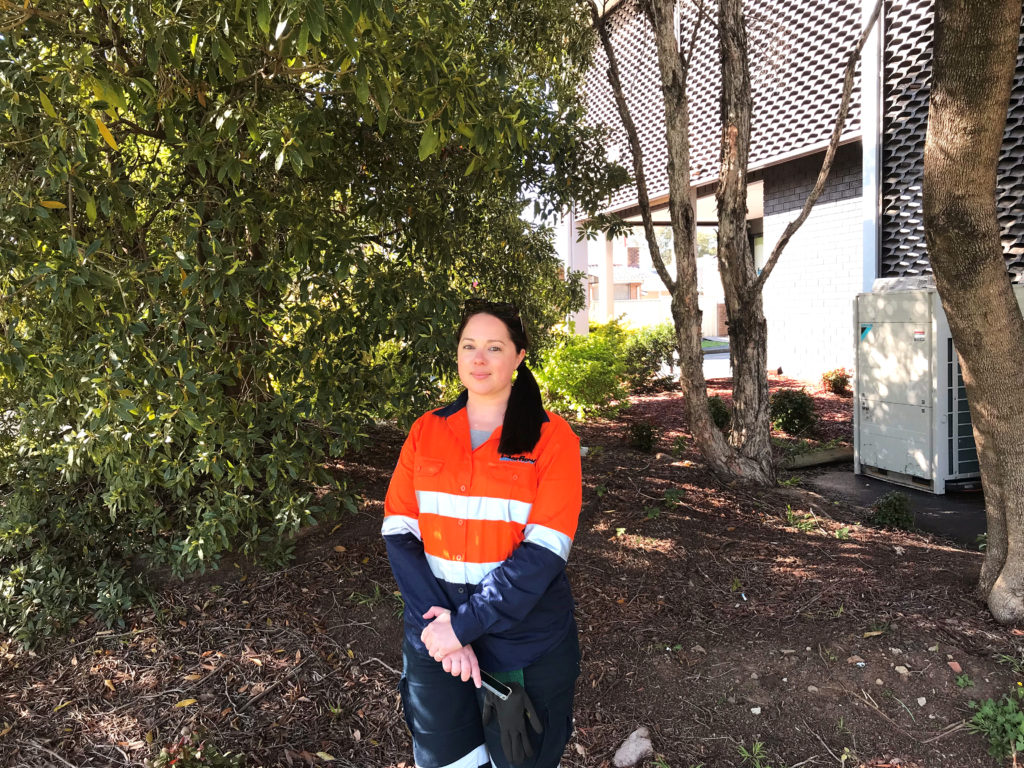Historically, many women have been deterred from ‘male-dominated’ fields such as civil construction or water services, due to underlying systemic cultural factors.
However, the tides are fast changing. More women than ever are entering these fields with unbridled enthusiasm and passion for what they do – bringing with them potentially world-changing new ideas and innovations.
Promising careers in construction
In Australia, the construction and utility sectors have remained two of the most male-dominated major industries for over 20 years.
While the gender gaps in other industries are closing, these fields have unfortunately not seen the same progress. This means few organisations are reaping the benefits that female participation in their workforce can bring. Similarly, many women are not realising the bountiful opportunities that can arise from a career in those fields.
For many women, deterrents include a lack of family role models, stereotypes around the nature of ‘women’s work’, discouraging workplace cultures and structural problems within those organisations.
A business that acknowledges the importance of equality in the civil construction and water industries is leading pipeline infrastructure company, Interflow.
The Company’s success over its 80+ year history has been underpinned by its people, drawing from the strength and diversity of their ideas.
Interflow recognises the societal, organisational, and cultural benefits that female participation in the construction industry can bring, including increased employee engagement, productivity and profitability.
Breaking down the barriers to entry
One woman shaking up the industry is Interflow’s Training Content Manager, Robyn Alderton.
Robyn is a strong advocate for equal opportunity and has championed women in construction at various stages throughout her career.

“I believe diversity is paramount to the long-term growth and prosperity of our industry,” said Robyn.
“How can a business expect to become (or remain) an industry leader if the organisation does not welcome new ideas, perspectives or innovations?”
Robyn is a firm believer that to accomplish transformation across a national industry, cultural change must first take place at an organisational level.
One key way to accomplish this is through leadership and mentoring programs.
Robyn has acted as a mentor to a diverse range of workers over the course of her career. Through these programs, she has sought to advise budding young professionals on the opportunities a career in construction can bring and guide them to broaden their skills and horizons simultaneously.
Paying particular attention to young women emerging into male-dominated fields, Robyn hopes to play her part in initiating large-scale change.
“Mentoring is a constructive way to attract and retain good people with ability and drive within a business,” she said.
“All of the most valuable role models I’ve had throughout my career, whether they were male or female, acted with honesty, integrity, and led by example – I’m proud to do the same.”
The power of education and leadership
Bringing over 13-years’ experience in the construction industry, Interflow’s HSE Business Partner, Mivvi Turner, has been on the other side, participating in a mentorship program run by the National Association of Women in Construction as a mentee in 2020.

For her, the experience proved to be invaluable.
“It was great to receive guidance and support from someone completely impartial who had experience within the same industry,” she said.
“I could bounce ideas off them or work through professional concerns… their experience and advice has had a profound impact on my work.”
There are proven benefits to professional mentoring, particularly for women in male- dominated fields.
These include identifying career goals, increasing confidence and opening doors to leadership.
“As the industry is exposed to an increasing number of women and societal attitudes towards gender polarisation in construction begin to shift, we will surely see more women take the leap into civil construction and utilities,” Mivvi said.
Shaping the future of the industry
The more that organisations, industries, and society as a whole, break down the barriers that prevent women from seeking employment in ‘male-dominated’ fields, the more genuine choice women will be able to exercise over how they choose to participate in the workforce.
Creating a path for gender equality in the construction industry is undoubtedly the best way forward.
This ensures that employers have access to a complete and representative pool of talent to ensure the best candidate is selected for the job.
Mivvi hopes her career as a HSE professional will help to pave the way for other ambitious and talented women to have a go in the construction industry.
“Upholding a strong culture of safety in any organisation is essential,” she said.
“I do hope that my participation in this industry champions that fact, but also reinforces that organisational attitudes towards equality should be treated with the same rigor and respect as safety.”
Robyn shares her vision for the future of the civil engineering and construction industries.
“The future is looking bright,” said Robyn.
“Together, we’re striving towards an equitable construction industry where women feel empowered to engage, fully participate and thrive.”


